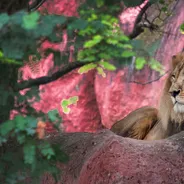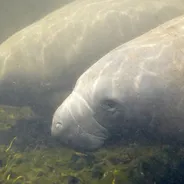If you haven't seen the 2013 documentary, Blackfish, about the dangers of the sea-park industry, you've surely heard of it. And if not, the social issue of holding animals in captivity isn't hard to understand. Keeping wild animals in confined spaces affects their health, mood and actions.
That's why travel agency, Virgin Holidays, has stopped offering packages to locations that promote animal cruelty through captivity, especially as these evils pertain to cetacean mammals like whales and dolphins. En lieu, Joe Thompson, Managing Director of Virgin Holidays says the company will offer natural, at-distance encounters with animals.

Virgin Holidays isn't the only travel company to make this kind of shift. Thomas Cook did so last year when the travel agency stopped selling trips to SeaWorld and Tenerife's Loro Parque - both of which were featured in Blackfish - as well as 27 other attractions.

Virgin Holidays chose to make this decision after discovering that 92 per cent of UK holidaymakers would prefer to watch animals in their natural habitats. So, they've given the people what they want, and are instead choosing to promote seeing animals in the wild, or in places that support animals currently in captivity.

In light of this news, naturally, sea-park giant SeaWorld is not happy. Speaking to Mirror Online, they said:
"It is disappointing to see Virgin Holidays succumb to pressure from animal activists who mislead and manipulate marine mammal science to advance their agendas. Virgin’s own corporate mission is having a measurable purpose that positively impacts communities and the environment. SeaWorld is the epitome of that mission."

"With more than 35,000 animal rescues and decades of meaningful scientific contributions, we are proud to be a recognized global leader in marine mammal science, education and, in particular, providing preeminent care to all of our marine mammals."
But being cognisant of animal rights is never a bad thing, especially when there are other ways to learn about and enjoy their beauty without harming them.












